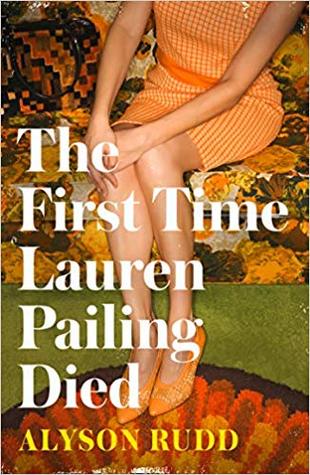Girl, Woman, Other – Bernadine Evaristo
I had been eager to read this for a while, the novel that won the latest Booker Prize (along with Margaret Atwood – a controversial move by the judges), having heard Evaristo speak at the Cheltenham Literary festival. It did not disappoint.
The novel is not so much plot-driven but more of a collection of short stories about (mostly) black British women of different ages and stages of life, from different social classes and backgrounds. Some she touches on briefly, others are given detailed life accounts, but their lives are all connected. Some connections do not become clear straight away and I found it enjoyable to discover the links between them.
There is Bummi, the cleaner with a Maths degree from Nigeria, whose daughter Carole goes to study Maths at Cambridge; Shirley, a teacher at Carole’s school who tries to improve the life chances of talented pupils; Amma, a theatre director and an old friend of Shirley’s; Amma’s daughter, Yazz, a 19-year-old student; non-binary Morgan, who Yazz hears speak at university … the list goes on. There are twelve central characters, some more likeable than others. The set of supporting male characters, however, are almost entirely unlikeable.
These women are mostly radical in some way, but different generations have different perceptions of what radical is. Amma, a feminist lesbian, amusingly is told by her daughter, “feminism is so herd-like […] to be honest, even being a woman is passé these days”. Yazz herself forms a clique at university within which they almost argue over who is the most oppressed, leading to a conversation about the “relative and contextual nature of privilege […] is Obama less privileged than a white hillbilly growing up in a trailer park with a junkie single mother and a jailbird father?”
As well as thought-provoking, I found the book laugh out loud funny at times. For example, when Dominique’s controlling new girlfriend makes a speech about “the racial implications” of various commonplace black items, declaring, “I never wear black underpants, for example, why crap on myself?” and Amma responds, “that’s not a problem for me […] because guess what, I’ve not crapped my pants since I stopped wearing nappies as a kid”. Race and identity are serious themes that occur one way or another in all of their lives but are usually dealt with in a light-hearted way.
As powerful novels usually are, it was also very moving at times. I particularly felt for Bummi in her loneliness after her daughter left home and for LaTishna, a young single mother, who seemed to keep ending up with the wrong man. However, the reader cannot delve deeply into all of their lives and perhaps it would have been a greater novel if there were fewer characters covered in more depth.
The writing felt friendly and conversational. Although not written in first person, the different sections seem to take on slightly different styles in line with the change in perspective. At first I was put off by the lack of full-stops (isn’t that a bit pretentious, trying too hard to be alternative?) but I stopped noticing after a while, after becoming absorbed in the characters’ lives, and the narrative flowed well with the line breaks. It seemed, at times, more like poetry than prose.
The ending, was slightly unsatisfactory though (as endings often are). To me it felt unnecessary and a bit too neat to have the majority of characters end up in the same place at the same time (at the opening night of Amma’s play), although it did bring resolution to some loose ends. For example, although they share an awkward conversation, Shirley (or Mrs King) finally gets the thanks she has been waiting for from Carole; and Dominque and Amma (old friends, now living continents apart) are briefly reunited.
All in all, this is well worth a read. A beautiful and fun novel, following these women through their successes and their struggles as they negotiate lives normally underrepresented in fiction.

